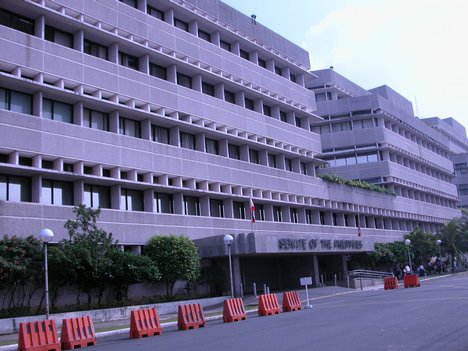News
Senate approves proposed PCOO budget

FILE: Facade of the Senate of the Philippines, in Manilla. (Photo By Skylab iss – Own work, CC BY-SA 3.0)
MANILA — The Senate on Wednesday approved without much ado the proposed budget of the Presidential Communications Operations Office (PCOO) and its attached agencies.
“The budget of PCOO for 2020 is pegged at PHP1.6 billion and I think there are no questions, Mr. President,” Senator Richard Gordon, the sponsor of PCOO’s budget, said immediately at the start of the deliberations.
Senate Majority Leader Juan Miguel Zubiri noted that no member of the Senate wished to interpellate the budget of the PCOO and the budget of Secretary Martin Andanar.
“Therefore, I move that the budget of the PCOO, the Office Proper, Bureau of Broadcast Services (BBS), Bureau of Communications Services (BCS), National Printing Office (NPO), News and Information Bureau (NIB), Philippine Information Agency (PIA), Presidential Broadcast Staff (RTVM), Intercontinental Broadcasting Corporation (IBC-13) and People’s Television Network (PTV-4) are deemed approved and submitted. I so move Mr. President,” Zubiri said.
“Hearing no objections, the budget of the PCOO and its attached agencies are hereby deemed submitted,” Senate President Vicente Sotto III said, ending the deliberations.
Prior to the proceedings, the Senate suspended consideration of the proposed budget of the Department of Transportation (DOTr) to take up the PCOO budget.
PCOO’s PHP1.698-billion budget for 2020 is about 12 percent higher than this year’s PHP 1.4 billion.
The PCOO budget shall be distributed as follows: PHP764 million for personnel services, PHP719 million for maintenance and other operating expenses (MOOE) and PHP213 million for capital outlay.
The PCOO was created in 2010 by virtue of Executive Order No. 4.
It mandates the PCOO to serve as the premier arm of the executive branch, engaging and involving the citizenry and the mass media to enrich the quality of public discourse on all matters of governance and build a national consensus.
The PCOO’s mission is to serve as the primary vehicle for consciousness-raising, constituency building, and social mobilization; and to support the policies, programs, and projects of the presidency.
It is also mandated to serve as a tool to inform, educate and enlighten the citizenry on matters of national importance to deepen their civic engagement.





















